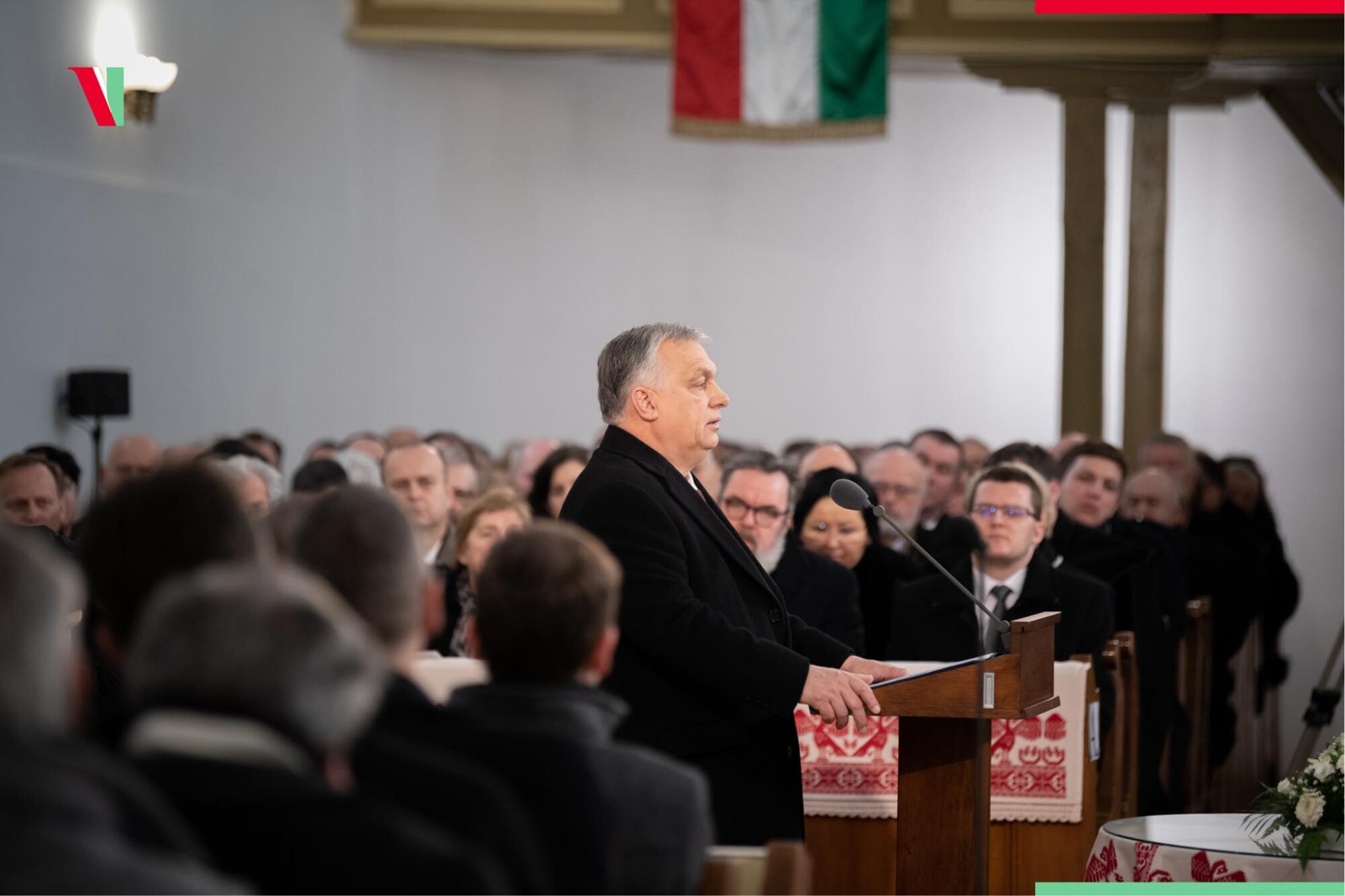
In a speech delivered by Hungarian Prime Minister Viktor Orbán on Sunday, January 22nd, the Day of Hungarian Culture, he called, among other things, for the country to remain on the current geopolitical trajectory it has chosen for itself, insisting that it will not allow itself to be dragged into the Russo-Ukrainian war.
The address was given at an ecumenical service held on the 200th anniversary of the initial writing of the Hungarian National Anthem, in the Reformed Church in the eastern village of Szatmárcsek, which sits on the border with the Transcarpathia region of Ukraine, the Budapest-based newspaper Magyar Nemzet reports.
“We cannot be lured into a trap by siren voices telling us to side with the good side of history,” said Orbán.
“The Hungarians have learned that the good side of history is determined by the great powers that prevail, and they are not interested in what is good for Hungarians,” the prime minister continued, adding that “this is why we [Hungarians] are not getting lost in the vortex of the increasingly bloody war, and this is why we want a ceasefire, negotiations, and peace.”
Orbán is the European Union’s only national leader who has long called for the initiation of peace talks to finally bring an end to the bloody conflict, which has killed and maimed hundreds of thousands, displaced millions of innocent civilians—and which is fast approaching its one-year mark. Furthermore, he is the only leader in the bloc to have refused to send arms shipments to Ukraine, insisting that to do so would run counter to Hungary’s national interests.
The prime minister zeroed in on Hungary’s long and illustrious history, its constant struggle to maintain its unique cultural identity, and to remain the master of its own fate amid persistent coercion from the great powers which have forever surrounded it.
“Hungary, just like 200 years ago, on the day its anthem was born, is still Hungary,” Orbán said, adding that: “Our greatest struggle has always been to remain who we are and to live the life we want.”
Orbán continued:
The Ottomans told us who is the true believer and who is the infidel. The Habsburgs told us who the good Christians were, the Germans told us whom we could live with and whom we could not. And the Soviets wanted to force us to become world proletarians instead of Hungarians who could eventually unite. And the Brussels bureaucrats want to hammer us into liberal world citizens instead of our Hungarian form, which is considered out of fashion. We always resisted them, we have always outsmarted them.
Prime Minister Orbán declared to the crowd of some one hundred faithful worshipers that it is Hungary and Hungary alone who “can say who may come in, who may stay here, who can live with us, and who can’t.” He added that it is Hungarians who wish to “determine how [their] lives are connected with our neighbors,” asserting that Hungarians do not see themselves as “better or worse” but as “different.” This distinctiveness, he said, has been conserved by Hungary’s centuries-old culture and tradition.
In his concluding remarks, the Hungarian Prime Minister proclaimed:
We are the Hungarians, who are not and will not be inferior to other peoples, and in our own special way we are as good, as brave, and as honorable a people as any other. The rest is up to God. We shall see in another two hundred years who will be left standing and which peoples will be sifted out by the lord of history. In the meantime, God above all of us, Hungary above all, go Hungary, go Hungarians!
The Day of Hungarian Culture, where the nation takes the time to celebrate its literature and poetry and those who produced it, marks the day poet Ferenc Kölcsey wrote the 1823 poem which would go on to become the country’s national anthem in 1844 after composer Ferenc Erkel created its melody.
